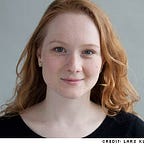Fixing Tolstoy’s Mistake
How a rock-opera version of War & Peace improves on the original
Of all the characters in War & Peace, little orphan Sonya is treated the worst. Her cousin Natasha becomes the soul of the Russian people. Sonya just gets dumped. (Her fiance ends up with a richer, more interesting character.) Tolstoy doesn’t see it as a tragedy that Sonya ends up as a kind of nanny to the children of the man she loved. He concludes—in the voice of her cousin—that it’s her own fault. Sonya is simply “one who has not.”
“She is a sterile flower you know—” Natasha says at the very end of the novel. “Sometimes I am sorry for her, and sometimes I think she doesn’t feel it as you or I would.”
I’ve always thought this is one of Tolstoy’s stupidest moments—the self-satisfied dismissal of a woman whose only “gift” is for “small services.”
One of the most beautiful parts of Dave Malloy’s rock opera version of War & Peace is that he corrects this mistake. Boring, well-meaning Sonya gets the best song. It’s a song about being boring, and knowing you’re boring, and loving someone passionate and crazy. Natasha is about to betray her fiancé and elope with an irresistible villain. She won’t talk to anyone about it. But Sonya knows. “I know you are capable of anything,” she sings. “I know you so well my friend.” (You can hear the song here.)
Malloy told The New Yorker that he wrote Sonya’s solo with his friend, Prairie Empire singer Brittain Ashford, in mind.
Natasha, Pierre, and The Great Comet of 1812 is staged in a velvet-lined tent full of cabaret tables. There are enormous starry chandeliers and oil paintings and big dance numbers, and everyone’s drinking vodka and making eyes at the actors and eating shrimp. Sonya’s song is different. Ashford sings it all alone in a corner of the darkened stage. It’s just her voice.
I will stand in the dark for you
I will hold you back by force
I will stand outside your door
I won’t see you disgraced…
I had never heard a love song like this, a song that promises, Yes, I am uncool and I am stubborn and I will take away what you want because you shouldn’t want it.
It’s not the kind of love that gets honored very often. That makes the song both gorgeous and unsettling. The Great Comet is a decadent show, in a decadent place, and then—too many drinks in—it asks you to think about loyalty.
Natasha, Pierre and the Great Comet of 1812 runs through September 1. Tickets, which include dinner and a shot of vodka, start at $125. Rush tickets (no dinner) are $49.
